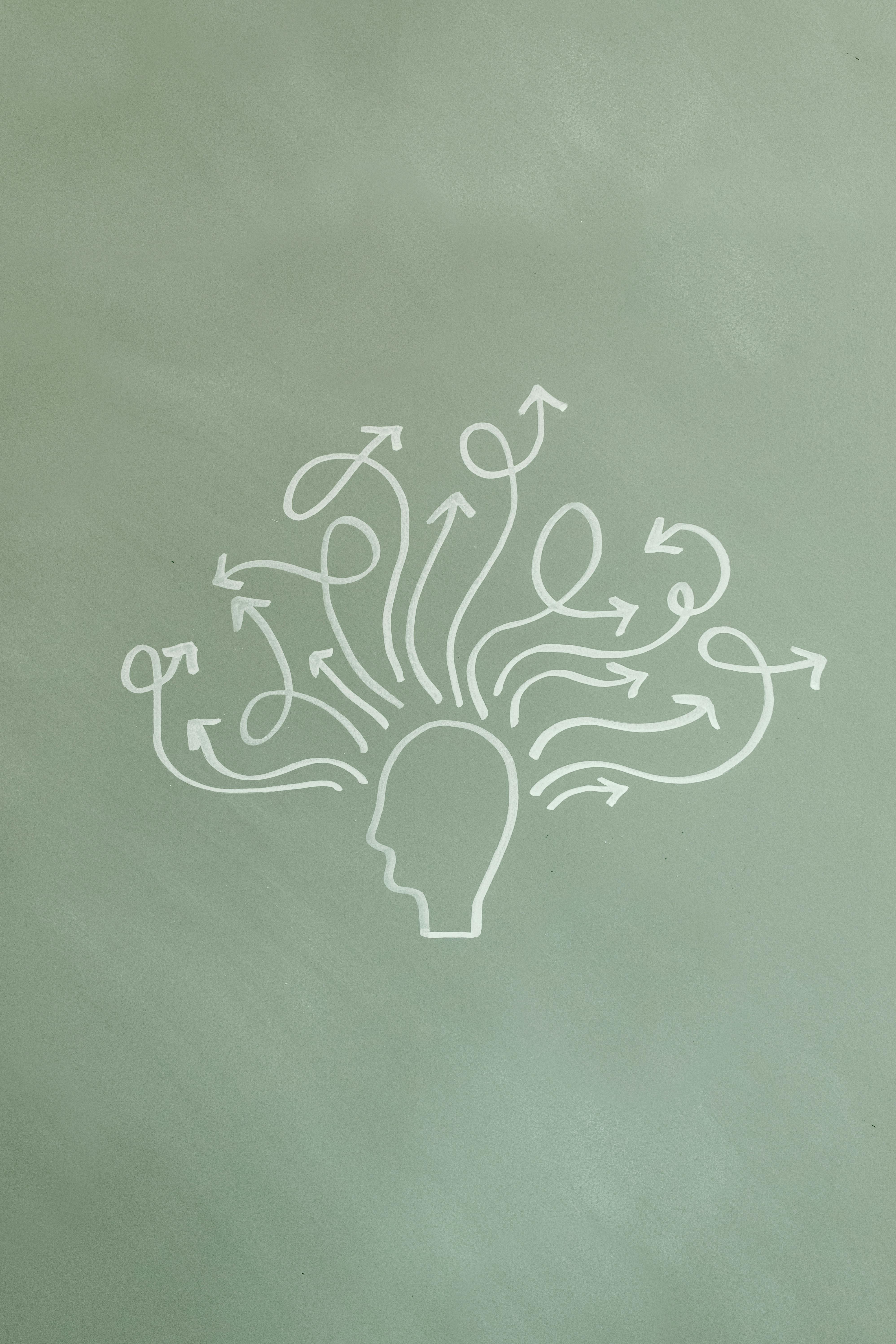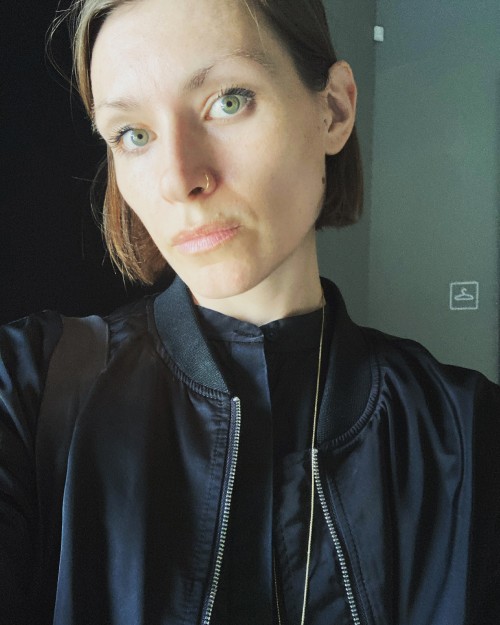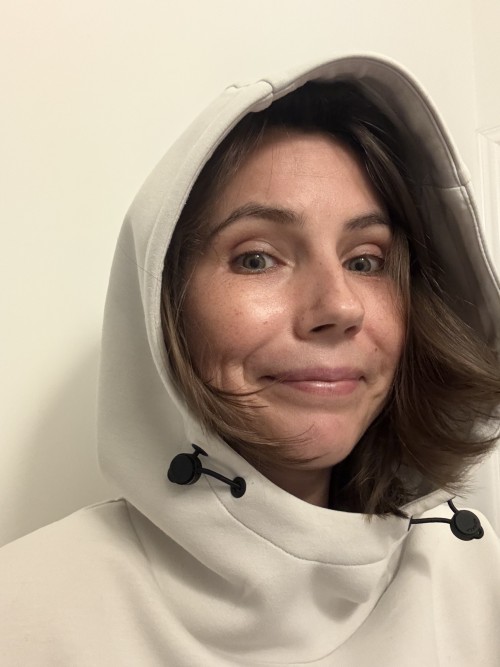The workshops are free but require registration and have limited places

08
.
10
14:00 - 17:00
Marijn Bril
,
,
,
Diagramming as a Networked Writing Method
08
.
10
14:00 - 17:00
Centrum Sztuki Współczesnej Zamek Ujazdowski
Diagramming as a Networked Writing Method
How can we write about art that is time-based, interactive, and networked?
This workshop explores how diagramming can support writing about media art and digital culture—fields defined by networked technologies. Instead of beginning with a fixed thesis or linear outline, we’ll start by mapping relationships between artworks, technologies, concepts, and contexts. Diagramming allows for thinking spatially and relationally. It reveals hidden links and conceptual clusters—offering multiple entry points into a topic. Through a series of short exercises, we’ll experiment with diagramming to generate, structure, and rethink your writing.
After the in-person workshop, we’ll hold an online follow-up session to present and discuss the written texts.
Wednesday October 8th, 14:00–17:00h | in-person workshop, Ujazdowski Castle for Contemporary Art, Warsaw
Wednesday, October 22nd, 16:00–18:00h | online follow-up meeting
Open to curators, artists, writers, journalists, and researchers, this session emphasizes process over polished outcomes. By the end, you’ll have new tools for writing that reflect the networked nature of your subject.

Marijn Bril
Marijn Bril is an independent curator and researcher based in Rotterdam. In her practice, she researches the overlapping fields of art and media studies. Through exhibitions, discursive programs, essays, and lectures, she explores topics such as systems, productivity, memes, artistic strategies, and knowledge production. Bril holds an Erasmus Mundus Joint Excellence Master’s degree in Media Arts Cultures, awarded by the University for Continuing Education Krems (AT), Aalborg University (DK), and the University of Łódź (PL). She has curated programs for organisations such as IMPAKT Centre for Media Culture (Utrecht), the Contemporary Immersive Virtual Art Festival (Vienna) and The Wrong Biennale (online). Her talks and essays have been featured by, among others, V2_, Mister Motley, and the Institute of Network Cultures.




08
.
09
Elsa Ferreira
,
,
,
How to Write About New Media Art – A Toolbox
08
.
09
How to Write About New Media Art – A Toolbox
How do we write about New Media Art? When confronted with a work in extended reality, should we turn to sensory language, or focus on decoding the underlying technology? At what point does an artwork become immersive, and what do we mean by hybridization?
In this workshop, we will draw inspiration from the “AI Authority of Art exhibition”, currently on view at the Ujazdowski Center for Contemporary Art, to expand our creative toolbox as storytellers and hone our writing craft.
One week following the workshop, we will hold an online reading circle to share our pieces and exchange experiences.
Monday September 8th, 14:00–17:00h | in-person workshop, Ujazdowski Castle, Warsaw
Wednesday, September 17th, 16:00–17:30h | online follow-up meeting

Elsa Ferreira
Elsa Ferreira is an independent journalist and editorial project manager based in Marseille. In her professional practice, she explores the overlapping fields of technology and culture. Through articles, editorial consulting, and conferences, she analyzes the impact of technology on society, follows new trends, and holds a special interest in counter-cultures. Ferreira is a graduate of law, with a specialization in Communication Law from Université Panthéon Assas (Paris II), and also holds a degree in journalism. She currently works as an Editorial Project Manager at L'ADN Studio and as the Deputy Editor-in-Chief for the "Rewilding Culture" project for Makery magazine, covering residencies at the intersection of arts and sciences across Europe. Her articles and analyses have appeared in a wide variety of media, including Libération, GQ, Society, Pour l'Éco, and KingKong.




07
.
10
14:00-17:00
Vera Zalutskaya
,
Kathryn (Katie) Zazenski
,
Ewa Borysiewicz
,
New Approaches to Contemporary Art Criticism
07
.
10
Wtorek
14:00-17:00
Muzeum Sztuki Nowoczesnej w Warszawie
New Approaches to Contemporary Art Criticism
How do you write about art that defies easy categorization or challenges Western-centric views? Ready to move beyond conventional critique and engage with exhibitions from a fresh, contextual perspective?
Workshop Description: This workshop, hosted by the editor-in-chief team of MOST magazine, will focus on art criticism as both a personal and a contextual practice. Participants will consider how to balance the writer’s individuality with the reality of the artwork, how to interrogate the role of judgment in criticism, and how to “read” exhibitions. The workshop will apply methodologies drawn from decolonial theory, horizontal art history, non-hierarchical collaboration, and center/periphery relations. These key themes and frameworks, regularly implemented by the editorial team, will be the platform to discuss how writing can both reflect and reshape the cultural narratives of Central and Eastern Europe. This workshop will be held in connection with the 2025 edition of the Kyiv Biennale, “Near East, Far West” which will be toured during the workshop. Note-taking materials will be provided, the workshop will be conducted in English. The workshop will be followed by an online session where participants will be able to share and discuss their writing and reflections.
Duration: 3 h
Part 1: On-site workshop (Tuesday, October 7, 14:00 - 17:00): An intensive, in-person session to develop practical tools and techniques, Museum of Modern Art in Warsaw.
Part 2: Online follow-up (Thursday, November 6, 16:00 - 18:00): A dedicated online reading circle where we will share the pieces we've written, exchange constructive feedback, and continue the conversation.

Vera Zalutskaya
Vera Zalutskaya: contemporary art curator, writer and cultural manager. Co-editor-in-chief of BLOK Magazine (2021-2024), co-founder of MOST magazine ( with Ewa Borysiewicz and Katie Zazenski). President of the GESSEL Foundations for the National Museum & Zachęta National Gallery of Art in Warsaw. Member of the Artistic Council of the Konrad and Paweł Jarodzki artist-in-residence programme. Since 2014 she has curated exhibitions and edited publications in Belarus, Denmark, Poland, Serbia and Croatia. She is one of the co-founders of the Identity Crisis Network platform. Between 2020-2022, she co-founded and co-led the artistic, curatorial and activist group ZA*Grupa (*Foreign artists living in Poland). A graduate of the European Humanities University in Vilnius and the Jagiellonian University in Krakow. Lives and works in Warsaw.

Kathryn (Katie) Zazenski
Kathryn (Katie) Zazenski: artist, curator, writer, editor and lecturer whose practice is centered around cultural production in independent, artist-led communities. Since 2018 she has been directing the Warsaw-based independent art space Stroboskop, where she has produced over 40 exhibitions as well as hosted numerous artist talks and lectures on contemporary art in East and Central Europe. In 2020, Zazenski began editing and writing for Blok Magazine where she was also producing the monthly column "Off-space Q + A", which functioned as an archive of artist-led spaces and projects of the CEE region. The column ran until November 2022, and in this time featured 28 unique spaces and remains one of the few resources documenting such projects in the region. In 2021, she assumed the role of co-editor-in-chief of the magazine alongside Vera Zalutskaya and Ewa Borysiewicz, which they stewarded until February 2024. The team formally resigned in April 2024 and together launched MOST magazine, as co-founders and co-editors-in-chief. In 2022, Zazenski also founded FRINGE Warszawa, an annual event that platforms artist-led, grassroots spaces and projects in Warsaw. Zazenski has held visiting lecturer positions in Europe and the US, including at the Art Academy of Latvia (LV), at Dartmouth College and Rutgers University (USA), and at the School of Form and the Academy of Fine Arts in Warsaw (Poland). Zazenski received her Master of Fine Arts degree in Sculpture from Cranbrook Academy of Art (USA) and is a two-time Fulbright Program scholar in Poland, where she has lived since 2015.

Ewa Borysiewicz
Ewa Borysiewicz: art historian, researcher, author of texts on art, ceramic artist, exhibition curator, and organizer of artistic events. She studied art history at the University of Warsaw and Freie Universität Berlin. She is the author of the book “Kinetic Vertigo,” which examines the political and emancipatory aspects of camera-less animation using the example of the works of Julian Józef Antonisz. From 2012 to 2019, she worked at the Adam Mickiewicz Institute in Warsaw, responsible for visual arts programmes. From 2018 to 2022, she co-organized (together with the Stereo and Wschód galleries) “Friend of a Friend”, a gallery-share initiative in Warsaw. In 2024 she was awarded a curatorial residency by the Igor Zabel Association in Ljubljana. Curator of group and solo exhibitions. Author of catalogue texts and critical texts on art, published in Flash Art, art agenda/ e-flux Criticism, NERO, Camera Austria, SPIKE, Texte zur Kunst, Art Basel Stories, Przekrój, Vogue Polska, and ZNAK. From 2021 to 2024, together with Katie Zazenski and Vera Zalutskaya, she worked at BLOK magazine as one of its editors-in-chief. In 2024, together with Zazenski and Zalutskaya, she launched MOST Magazine, an online journal for Central and Eastern European art and culture. Her current research interests focus on neuroscience, consciousness theory, epistemology, narratology, and behavioral economics, as well as the use of video game aesthetics and mechanics in visual arts.

Past editions











%20copy.svg)







